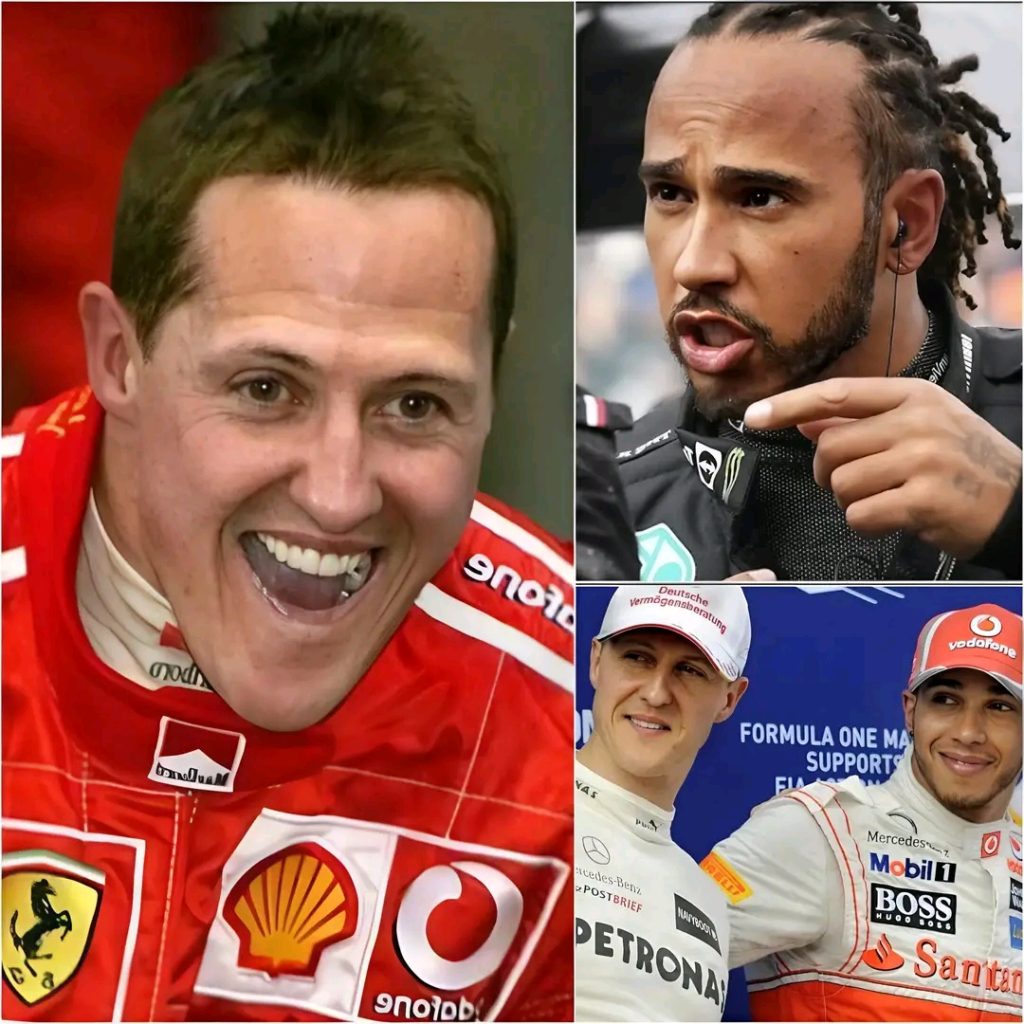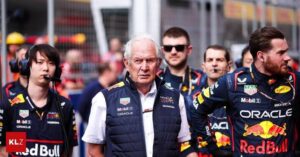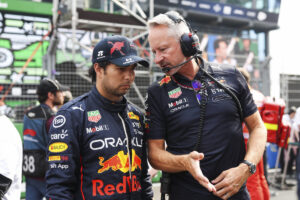Breaking News: Michael Schumacher EXPOSE Lewis Hamilton: ‘His Records Are Impressive, But…’

Michael Schumacher Comments on Lewis Hamilton: ‘Impressive Records, But…’
In the world of Formula 1, few debates are as heated as the comparison between two of the sport’s all-time greats: Michael Schumacher and Lewis Hamilton. Both drivers have left an indelible mark on F1, with fans often drawing parallels between their extraordinary careers. Recently, Schumacher’s remarks about Hamilton have reignited discussions, offering insights into his perspective on the Briton’s achievements.
With a career spanning over two decades and seven world championships, Schumacher’s thoughts on the sport carry considerable weight. Over the years, he has acknowledged Hamilton’s outstanding accomplishments, particularly his record-breaking number of race wins and pole positions. “His records are impressive,” Schumacher stated, in recognition of Hamilton’s success. “He has redefined what it means to be a successful driver in this era.”
While Schumacher clearly respects Hamilton’s prowess, his comments come with an intriguing caveat: “But…” This one word has sparked debate among fans and analysts, suggesting that Schumacher believes there is more to the story than just Hamilton’s numbers. Schumacher hints at a comparison between the different contexts in which their careers unfolded, adding nuance to the discussion.
Schumacher’s dominant era in the late 1990s and early 2000s was marked by a different set of challenges, including distinct regulations, evolving technology, and unique team dynamics. Hamilton, on the other hand, has achieved much of his success in the hybrid engine era, a period that has also seen Mercedes’ dominance. “Winning is not just about the numbers; it’s about how you handle the pressure and the competition at the time,” Schumacher explained. This comment draws attention to the psychological side of the sport, which often goes unnoticed but plays a significant role in determining success.
Schumacher’s remarks encourage fans to think beyond Hamilton’s impressive statistics and consider the hidden challenges he faces that may not be evident in the raw data. For instance, Hamilton has had to deal with immense media scrutiny, pressure from fans, and competition from a new generation of rising stars. These factors, Schumacher implies, are just as important as the race wins and pole positions. Mental strength, the ability to manage pressure, and maintaining performance over time are crucial elements of a driver’s greatness, aspects Schumacher himself excelled at during his reign.
In response to Schumacher’s comments, Hamilton has remained gracious and respectful. “I’ve always looked up to Michael and his achievements,” Hamilton said in a recent interview. “I know the challenges I face, and I’m proud of my journey.” This response highlights Hamilton’s awareness of the pressures he faces and his determination to carve out his own legacy while acknowledging the greatness of his predecessor.
The ongoing debate between Schumacher and Hamilton’s fans underscores how complex it is to compare drivers from different eras. Schumacher’s remarks shed light on the broader factors that influence success in Formula 1, reminding fans that greatness goes beyond just the statistics. Schumacher and Hamilton both navigated unique challenges during their careers, and understanding the contexts in which they raced adds depth to any comparison between them.
Ultimately, Schumacher’s comments emphasize that success in Formula 1 is multi-dimensional. Hamilton’s records are undeniably impressive, but Schumacher’s insights invite a deeper consideration of the mental resilience and adaptability required to thrive in the ever-changing world of F1. As the debate continues, one thing is clear: both Schumacher and Hamilton have made lasting contributions to the sport, and their legacies will be remembered as integral parts of Formula 1 history. The measure of their greatness lies not only in their records but in their ability to master the challenges of their respective eras.








